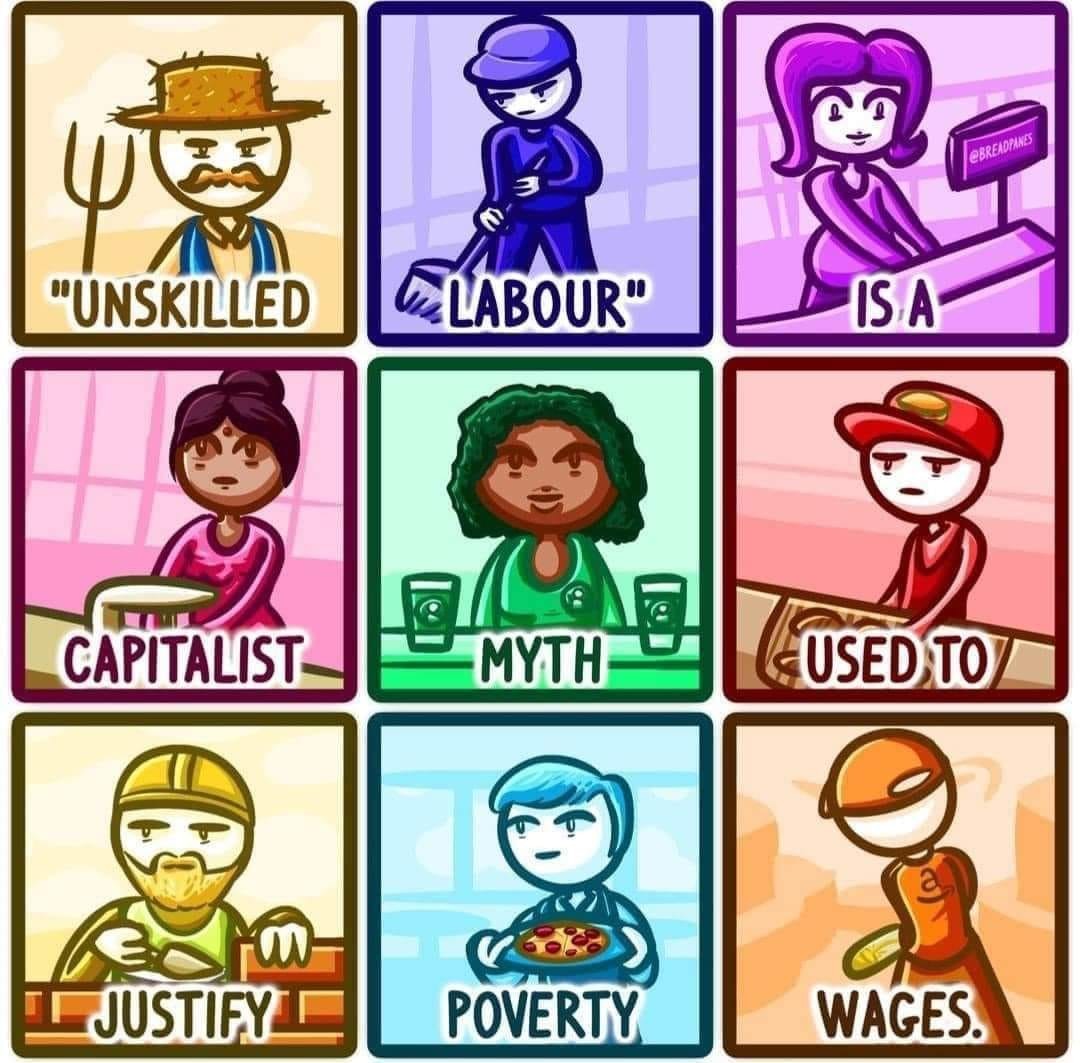this post was submitted on 21 Jan 2024
641 points (88.5% liked)
unions
1697 readers
151 users here now
founded 2 years ago
MODERATORS
you are viewing a single comment's thread
view the rest of the comments
view the rest of the comments

Poverty wages are paid to workers that are highly fungible.
The concept of unskilled labor refers to tasks that require little or no specialized training or knowledge to perform. This can include manual labor or work that requires very basic skills. In reality, this type of work has existed for centuries, long before capitalism emerged as an economic system. For instance, agricultural work during the feudal era falls under the category of unskilled labor. Even today, there are numerous industries with high demand for such workers, from construction sites to warehouses.
Regarding the claim that unskilled labor is a "capitalist myth," it's important to note that while capitalism does promote a competitive market where businesses strive to minimize their costs (including labor), this concept has existed since the beginning of human civilization. It is not exclusive to capitalism. However, the extent of exploitation and the justification behind poverty wages might have intensified under a capitalist system due to private property rights and the profit motive.
When a business owner hires unskilled labor, they expect these employees to be less productive than those who possess specialized expertise or training. Consequently, businesses tend to pay lower wages to workers who do not contribute significantly to their profits. This notion may seem unfair to some, but it stems from the law of supply and demand. If there's an oversupply of unskilled labor, employers have the upper hand in setting wages at levels that meet their needs. As a result, many workers accept lower wages because they lack alternative employment opportunities.
In summary, the existence of unskilled labor predates capitalism, and its association with poverty wages is not solely due to this economic system. The concept of unskilled labor reflects tasks that require little training or knowledge, which can be found across various historical periods and societies. Furthermore, the link between low-paid unskilled labor and capitalism arises from market forces that determine wages based on supply and demand. Thus, calling unskilled labor a "capitalist myth" used to justify poverty wages oversimplifies a complex issue that involves factors beyond the scope of any one economic system.
It's crazy that you needed to write this essay to explain to Lemmy folks that:
The above things can be true while also saying that ALL labor (unskilled or not) should be treated with respect and basic human decency.
I'm not stanning capitalism here, I'm just tired of Lemmings who've either missed all of their basic econ classes or have never tried to run their own business telling me how to allocate wages relative to value.
Executive pay relative to everyone else is out of control, no arguments there. But skilled and professional labor is highly productive relative to unskilled, and should be compensated accordingly.
Exactly. If all labor was valued equally, why would people bother becoming surgeons or air traffic control people? Those can be very high stress jobs and require specialized training to do properly. Higher wages are a huge part of why people choose those professions.
I agree about executive pay, but dismissing unequal pay is like throwing the baby out with the bathwater.
You really can't tell when someone's using ChatGPT to shit out persuasive essays?
The real problem is that for most of western history, unskilled labor was largely performed by slaves.
Funny thing is, you balance earnings and expenses for slaves vs modern workers, and the math vastly favors the slave. But that’s bad for other reasons.
It may not even be that they are productive on their own, but that they have essential skills or knowledge that allows the business to function. For example: they may be one of few people who know the ins and outs of a specific mission-critical system, and that knowledge may not be easily transferrable.
It’s not just how much you contribute to profits, it’s also how easily you can be replaced. If you contribute a lot to profits, but you can easily find 100 others who can replace you, you’re still not getting a big paycheck.